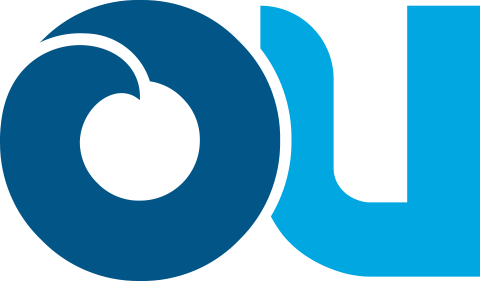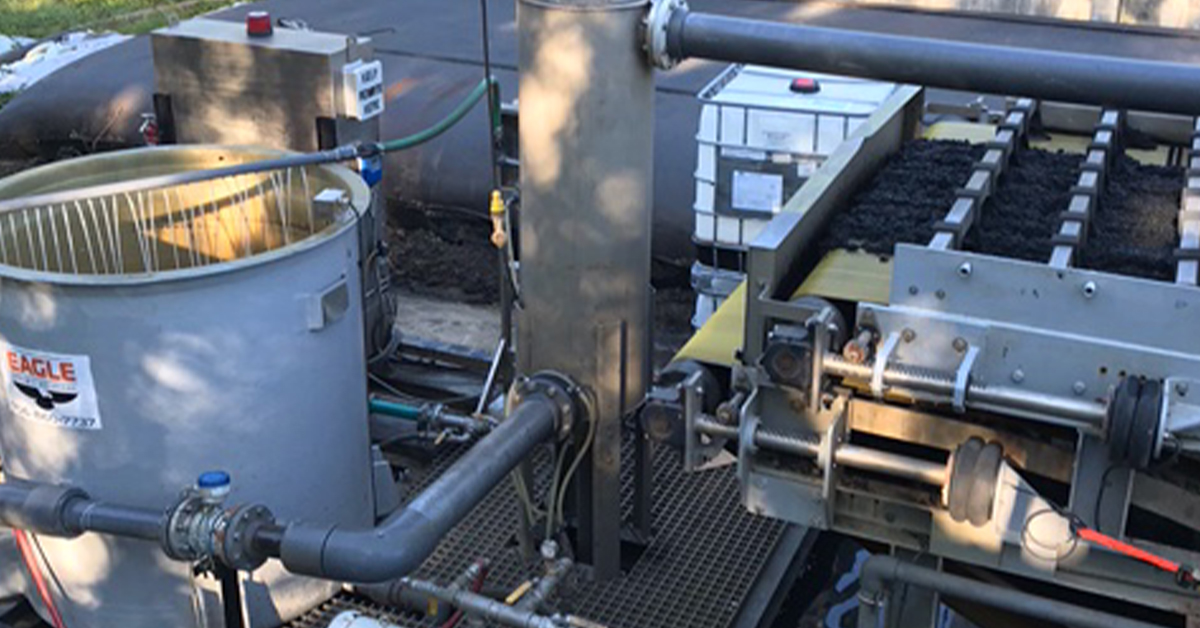Operators Unlimited was contracted to assist with the decommissioning of a textile mill wastewater treatment plant. The plant was originally treating its own wastewater under a NPDES permit and was discharging into a nearby river. As part of the decommissioning process, the mill was changing its permit to now discharge directly to a local municipal publicly owned treatment works (POTWs).
As with most decommissioning projects, the environmental ramifications of a 40-year wastewater treatment facility and the remaining solids in its aeration basins were of major concern. The onsite engineer was tasked with removing the solids and properly disposing of the resulting sludge, while remaining compliant.
To successfully complete this project the Operators Unlimited team enlisted the following company services sectors: technical sales, engineering services, operational staffing and chemical treatment and optimization. Together, the Operators Unlimited team implemented a four-phase project approach.
Phase One:
Facility assessment and project scope.
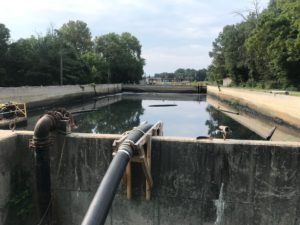
With cost and time being the most scrutinized aspects of the project, Operators Unlimited developed a project timeline and proposed budget for the project. The customer was projecting a nine-month project scope and estimated they had four percent solids in their basins.
Dewatering Project factors to be considered:
- 2 one-million-gallon basins
- Proximity to a major river running through North and South Carolina
- Site footprint was not conducive to large scale equipment
- Restrictive customer budget
Operators Unlimited proposed the use of geotextile dewatering bags as a cost-effective means of removing and processing solids. Operators Unlimited was asked to construct a proof-of-concept setup before final approval was given. After a successful testing period, the green light was given to proceed with a full-scale setup.
Phase Two:
Implementation plan to identify and mitigate environmental risks.
As the plant was located adjacent to a major river, this presented an external factor that had to be considered when removing solids from the basins. Precautions were implemented regarding hours of project operation and operational monitoring.
Phase Three:
Innovative and cost-effective means of achieving project objectives.
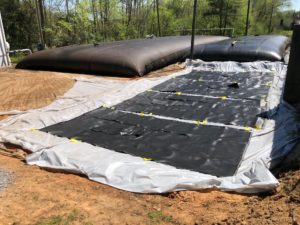
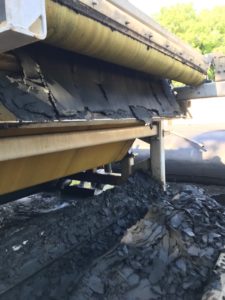
Water and solids were extracted from the basins with a slurry pump to a catch basin and into geotextile dewatering bags. Water from the catch basin was recycled back into the plant. The geotextile bags were an effective cost-saving dewatering method and initially worked within the timeframe of the project.
As the project progressed it was discovered the aeration basins contained 4-5 times the volume of solids than originally projected. With the project entering its ninth month, it was decided by Operators Unlimited and the client that a secondary method of removal was needed to expedite project completion. Options were presented to the client and together decisions were made to proceed with a press belt filter.
Phase Four:
Operations and ongoing monitoring to project completion.
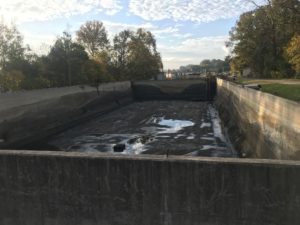
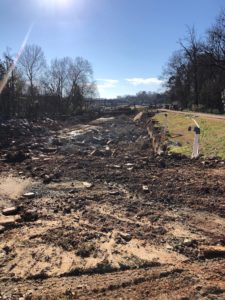
The project was designed to operate during regular, daylight business hours. Operators Unlimited supplied onsite operators to implement and monitor the project’s progress. The team members were also in charge of sludge testing, compliance and removal.
Day-to-day communication with the customer point of contact and company supervisor remained transparent. The hurdle of increased volume of solids was dealt with as solutions were presented to the customer. The project timeframe was managed from a corporate level and based upon on-site progress.
As the timeframe needed to complete the project was tightened, Operators Unlimited worked with the onsite point of contact to revise the scope of work. The flexibility of both the customer and Operators Unlimited allowed the project to progress with alternative technology on time and on budget and with the ultimate demolition and removal of the original wastewater treatment plant.
